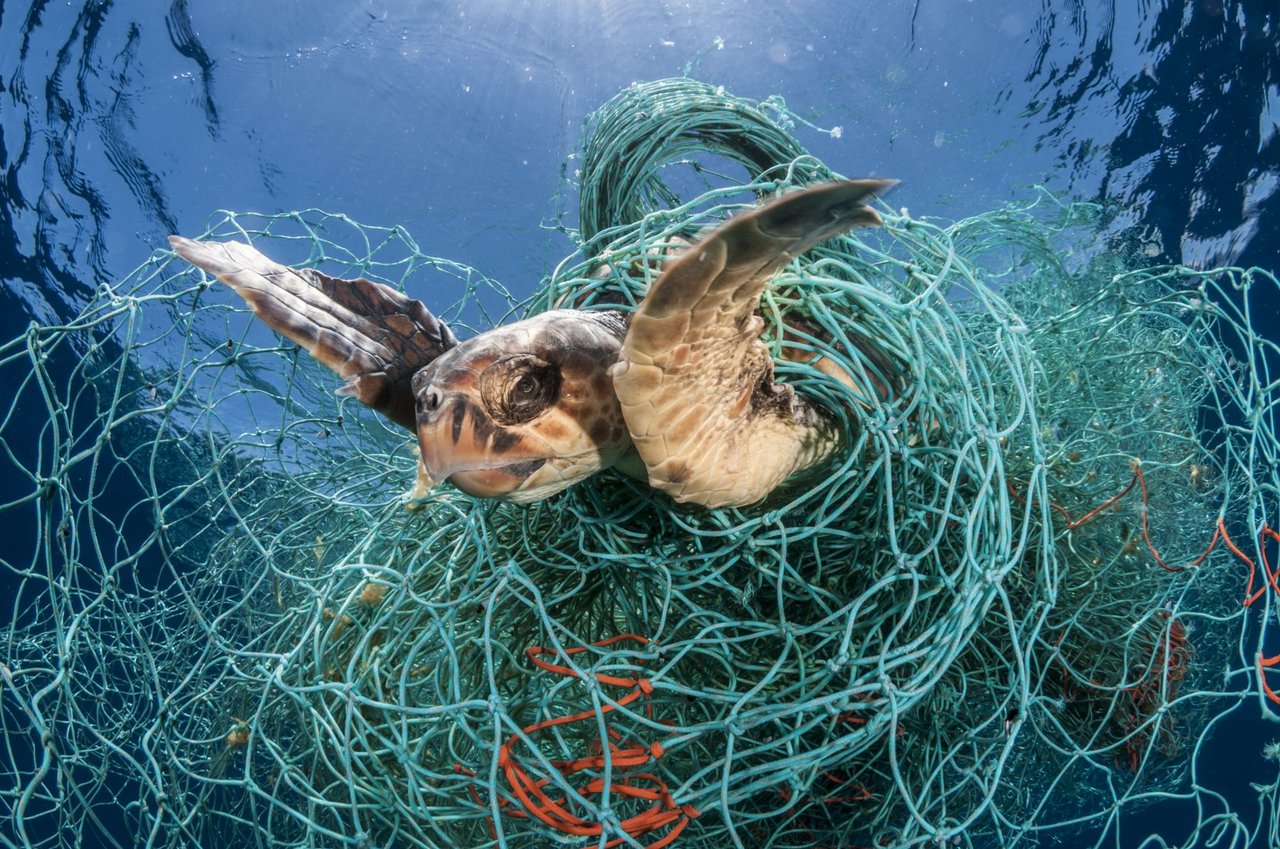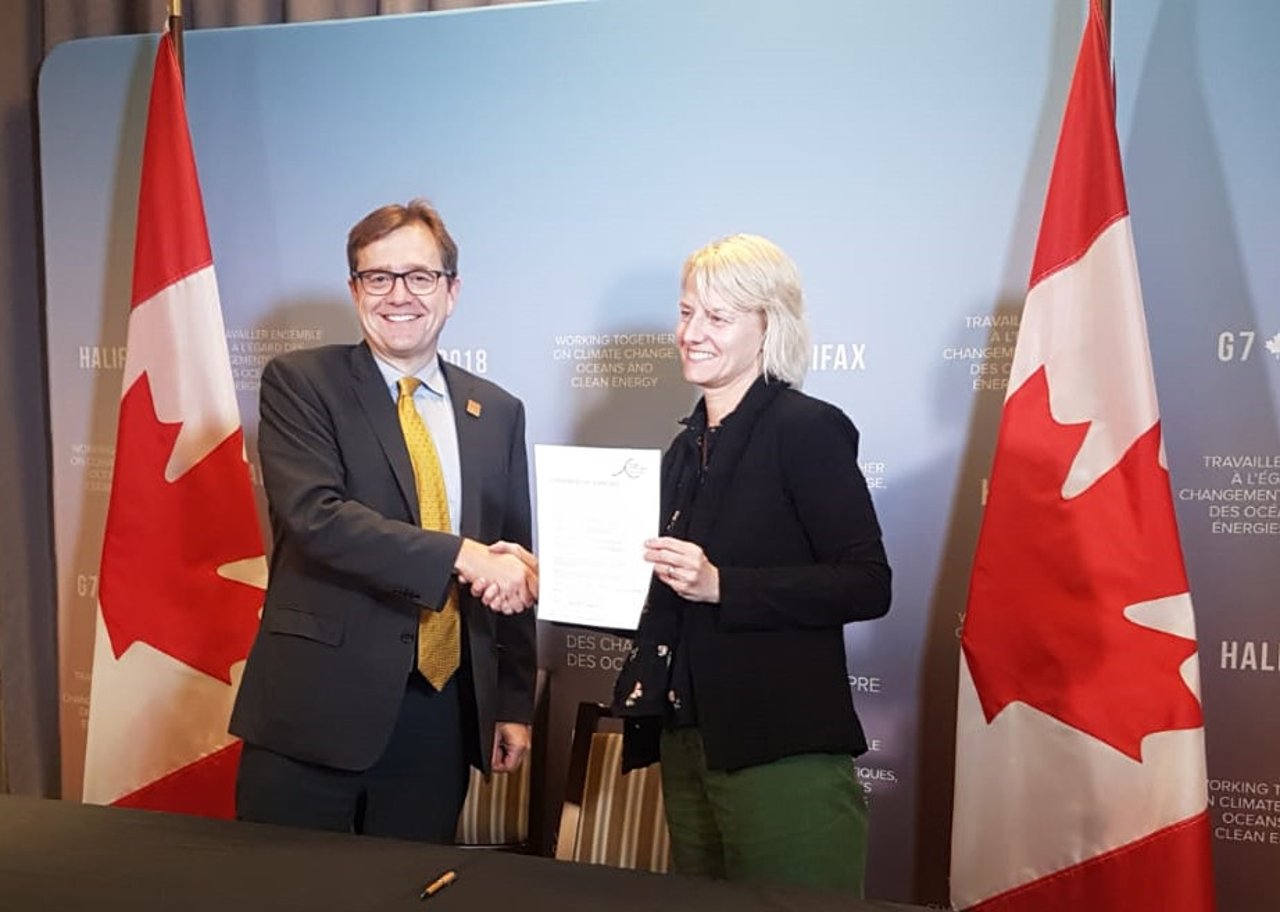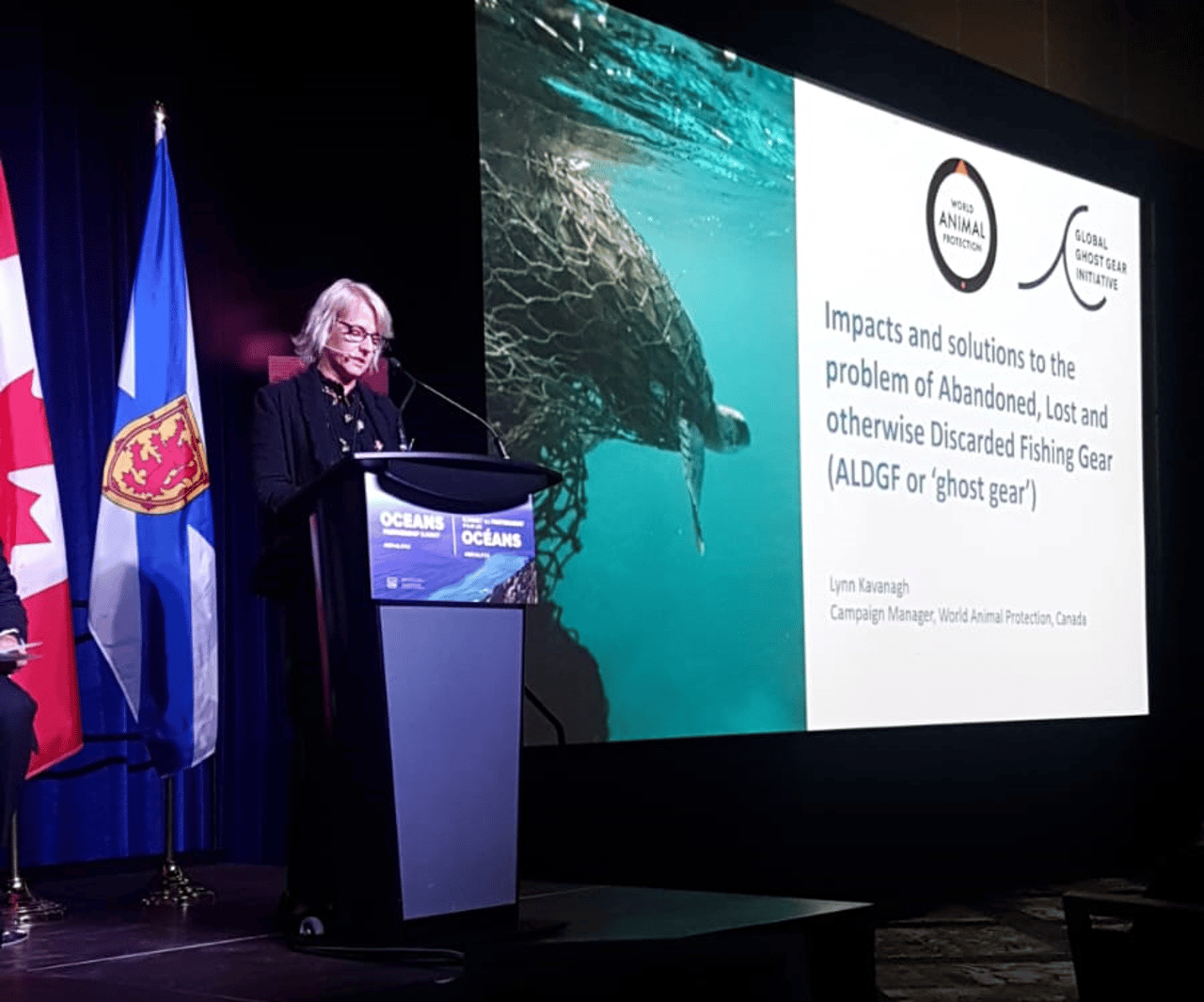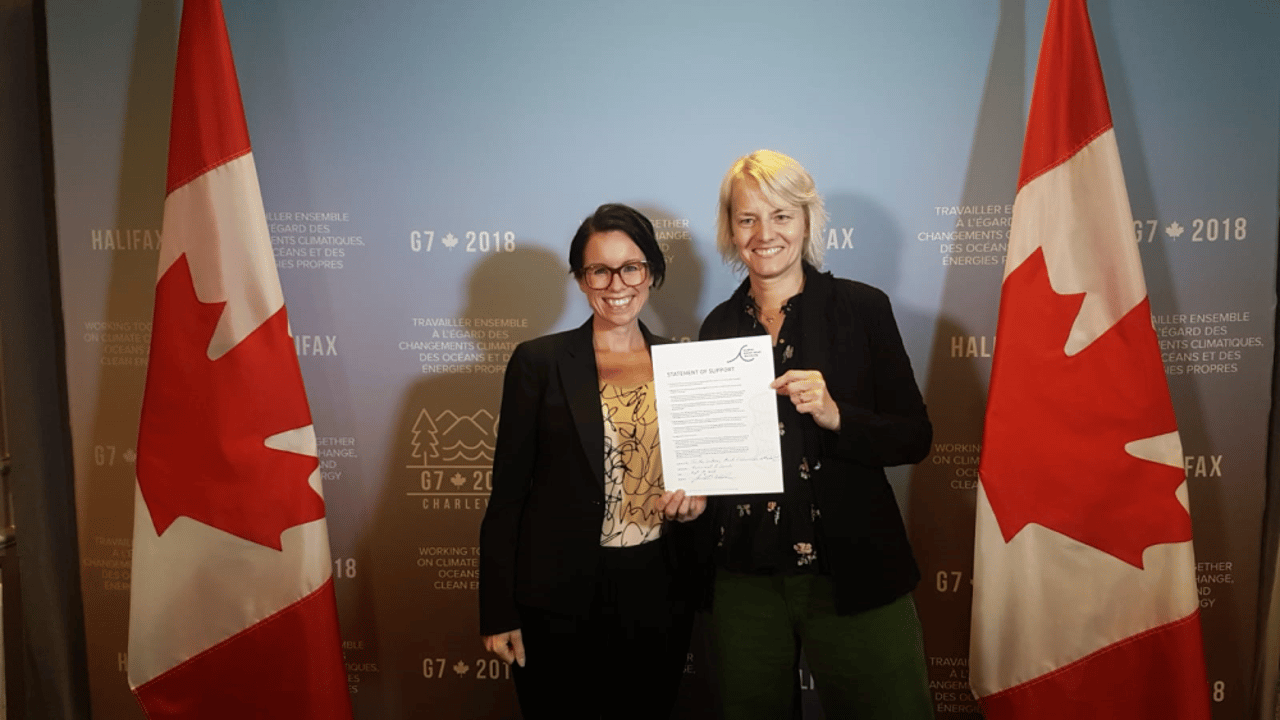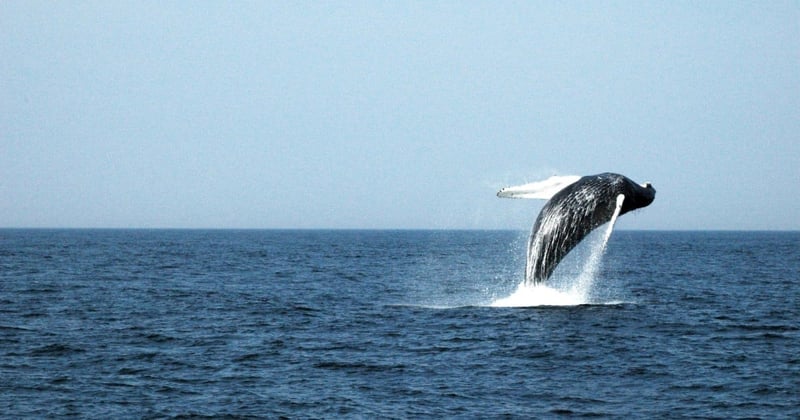
Canada joins the fight against ghost gear
News
Marine animals in Canada will soon be getting more protection as Canada has signed on to the Global Ghost Gear Initiative (GGGI)
We’re thrilled to share the news that Canada has joined the GGGI.
This landmark achievement comes following years of lobbying the government and would not have been possible without our incredible supporters helping us to raise awareness about this issue.
A loggerhead turtle trapped in an abandoned drifting net. Animals of all sizes, from whales to the endangered Loggerhead and Leatherback sea turtles, to small fish like the Brook Trout, run the risk of being entangled, injured and even killed every day. Photo: Jordi Chias / naturepl.com
We created the GGGI in 2015 to tackle the global ghost gear crisis and protect animals from its deadly effect.
Ghost gear is found in every sea and ocean on the planet, along Canada’s coast lines and is a major contributor to ocean plastics. It traps, injures, mutilates and kills hundreds of thousands of whales, seals, turtles and other sea animals every year.
Ghost gear makes up 70% of marcro-plastics in the ocean.
Announced at the G7 in Halifax
The announcement was made by Jonathan Wilkinson, Minister of Fisheries, Oceans and the Canadian Coast Guard, during the G7 meeting of Environment, Energy and Oceans Ministers in Halifax, Nova Scotia. World Animal Protection was invited to participate in the aligned Ocean Partnership Summit, on a panel covering sustainable fisheries including reduction strategies for ghost gear.
Signing on to the GGGI is an important next step in Canada’s commitment to reduce ocean plastics. It means they will be addressing one of the deadliest forms of plastic debris for marine animals like whales and turtles.
Jonathan Wilkinson, Minister of Fisheries, Oceans and the Canadian Coast Guard (left) and our Oceans Campaign Manager Lynn Kavanagh signing the Global Ghost Gear Initiative statement of support.
Our Executive Director Josey Kitson commented on the announcement:
Canada’s agreement to sign on to this initiative is a game changer. Our country has the longest total coastline in the world and Canada is sending a clear message that it is a leader in tackling ghost gear, protecting vulnerable species, improving the health of marine ecosystems, as well as safeguarding fishing industry livelihoods.
Jonathan Wilkinson, Minister of Fisheries, Oceans and the Canadian Coast Guard explains why it’s important for Canada to sign on to this initiative:
Lost and abandoned fishing gear kills and injures marine life and has a significant damaging environmental impact. Not only does it negatively affect marine life and fish stocks globally, it also has a significant economic impact that is felt most acutely by the coastal communities and industries that depend on fisheries for their livelihoods. Our Government knows the time to act is now. We are proud to be a signatory to the Global Ghost Gear Initiative and we are committed to improving the health of marine ecosystems, safeguarding human health and livelihoods and protecting marine life from harm.
Among the outcomes of the G7 Leaders’ Summit, held from June 8-9 in Charlevoix, Quebec, was the Charlevoix Blueprint for Healthy Oceans, Seas and Resilient Coastal Communities and The Plastics Charter. With ghost gear accounting for an estimated 70% of ocean macro-plastic by weight, this commitment will go further in promoting sustainable oceans and fisheries, support coastal communities and tackling marine litter.
Our Oceans Campaign Manager Lynn Kavanagh presenting impacts and solutions to the global issue of lost, abandoned or discarded fishing gear – aka ghost gear – at the Sustainable Fisheries Panel during the G7 Oceans Partnership Summit.
This commitment means that Canada will work alongside other key players in the GGGI to create solutions and reduce the harmful impacts of ghost gear on a global scale.
It’s positive to know that our message has been heard and we look forward to working alongside Canada in the GGGI.
Our Executive Director Josey Kitson (left) and Oceans Campaign Manager Lynn Kavanagh (right) holding the signed statement of support.
This commitment means that Canada will work alongside other key players in the GGGI to create solutions and reduce the harmful impacts of ghost gear on a global scale.
